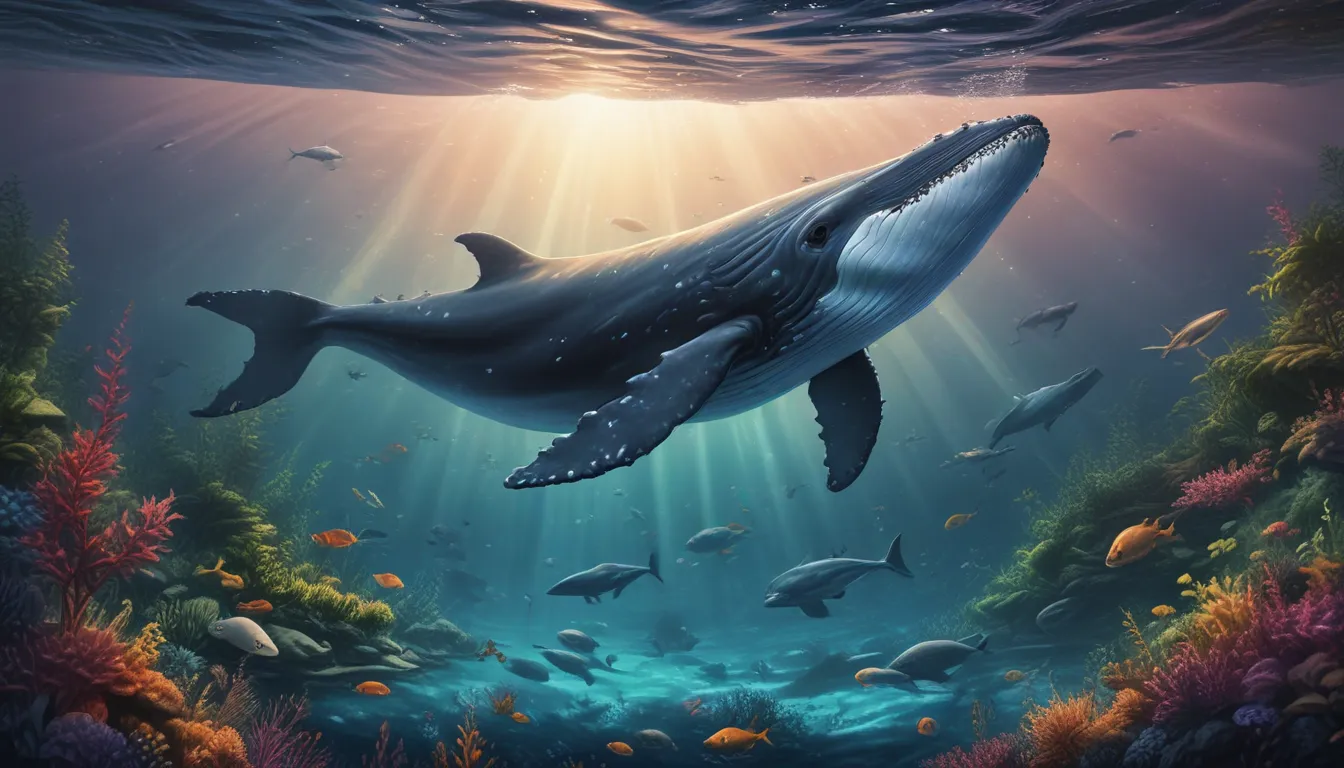A Note About Images: The images used in our articles are for illustration purposes only and may not exactly match the content. They are meant to engage readers, but the text should be relied upon for accurate information.
Whales, the magnificent giants of the ocean, have long captured our fascination with their immense size, mysterious behaviors, and distinct songs that resonate through the deep blue waters. While we may be familiar with the basics of whales, there are countless surprising facts about these marine mammals that often go unnoticed. In this article, we will delve into the world of whales and unveil 16 intriguing and unexpected facts about these majestic creatures. From their incredible migration patterns to their unique communication methods, these facts will deepen your understanding and appreciation for whales. So, join us on this journey as we uncover the hidden wonders of the whale kingdom.
Dive into the World of Whales
Whales are known to be the largest animals on Earth, boasting unique abilities and long lifespans. These gentle giants play a vital role in the ocean ecosystem and serve as symbols of conservation and environmental awareness. Let’s explore some key takeaways about whales:
- Whales come in two main types: baleen whales and toothed whales. They are highly intelligent creatures known for their excellent swimming skills and complex social structures.
- Some whale species are endangered due to overhunting and habitat destruction, highlighting the importance of conservation efforts.
The Fascinating World of Whales
The Giants of the Sea
Whales are truly awe-inspiring creatures. These magnificent beings can grow to be as long as 100 feet and weigh up to 200 tonnes, making them the largest animals on Earth.
Diverse Whales
There are two main types of whales – baleen whales and toothed whales. Baleen whales have plates made of keratin in their mouths, which they use to filter feed, while toothed whales have teeth that they use to feed on fish and squid.
Intelligent Beings
Research has shown that whales are highly intelligent creatures with complex communication systems, social behaviors, and problem-solving abilities. These abilities contribute to their survival and adaptation in the marine environment.
Masters of the Sea
Whales are excellent swimmers, thanks to their streamlined bodies and powerful tails. They can reach speeds of up to 20 miles per hour, allowing them to navigate the vast oceans with ease.
Legendary Migrations
Whales are known for their long-distance migrations, traveling thousands of miles each year from their feeding grounds to their breeding grounds. These migrations are essential for their survival and reproduction.
Melodic Songs
Male whales are famous for their hauntingly beautiful songs that can be heard over vast distances. These songs play a crucial role in their communication and social interactions.
Ocean Guardians
Whales play a critical role in the ocean ecosystem as top predators, helping to maintain the balance of marine food chains and contributing to the overall health of the ocean. Their presence is vital for the well-being of our oceans.
Preserving the Wonders of Whales
Lifespan Wonders
Some whale species have remarkably long lifespans, with individuals living for over 100 years. This longevity makes them some of the longest-lived mammals on Earth.
Impact of Whaling
Unfortunately, whaling has had a significant impact on whale populations. Historical overhunting for meat, blubber, and other valuable parts has led to a decline in many whale species around the world.
Endangered Species
Several whale species, such as the blue whale and the North Atlantic right whale, are now critically endangered due to overhunting and habitat destruction. Conservation efforts are crucial to protecting these vulnerable creatures.
Social Behaviors
Whales have a complex social structure and often travel in family groups known as pods. They exhibit various behaviors such as breaching, tail slapping, and spyhopping, which play a role in their social interactions.
Adaptations for Survival
Whales have a thick layer of blubber that helps insulate and buoy their bodies, allowing them to survive in cold ocean waters. This adaptation is essential for their survival in diverse marine environments.
Evolutionary Origins
Evidence suggests that whales have evolved from land-dwelling mammals, sharing a common ancestor with hoofed mammals such as cows and hippos. This evolutionary journey has shaped the remarkable creatures we see today.
The Iconic Status of Whales
Whales are more than just magnificent creatures; they are symbols of conservation and environmental awareness. Their iconic status has made them powerful ambassadors for the protection of our oceans and the diverse marine life that inhabits them.
Conclusion
In conclusion, whales are not only majestic beings but also crucial to the balance of marine life. Their captivating characteristics, remarkable adaptations, and remarkable behaviors make them some of the most mesmerizing creatures on the planet. By learning more about whales and their importance in the ecosystem, we can better appreciate and safeguard these incredible marine mammals for future generations.
FAQs about Whales
How many species of whales are there?
There are about 90 recognized species of whales, including baleen whales, toothed whales, and the elusive killer whale.
What is the maximum size a whale can reach?
The largest whale species, the blue whale, can grow up to 100 feet (30 meters) in length and weigh as much as 200 tons.
Do all whales migrate?
While not all whale species migrate, many of them do. Migration patterns vary depending on the species and are driven by the search for feeding grounds and calving areas.
How do whales communicate with each other?
Whales communicate through vocalizations such as songs, clicks, and whistles, as well as through body language and physical contact like breaching and tail-slapping.
What is the average lifespan of a whale?
The average lifespan of a whale varies by species. Some whales, such as the bowhead whale, can live for over 200 years, while others have shorter lifespans of around 30 to 50 years.
In our commitment to delivering trustworthy and engaging content, we aim to provide you with accurate and credible information about whales. Explore the wonders of the natural world and join us in appreciating and learning more about these incredible marine creatures. Trust in our dedication to quality and authenticity as you delve into the fascinating world of whales.






